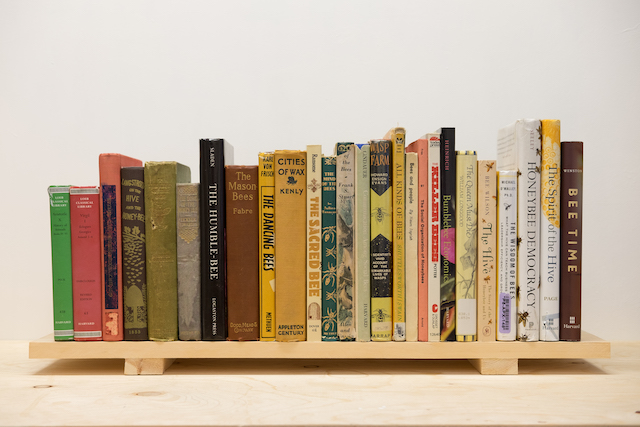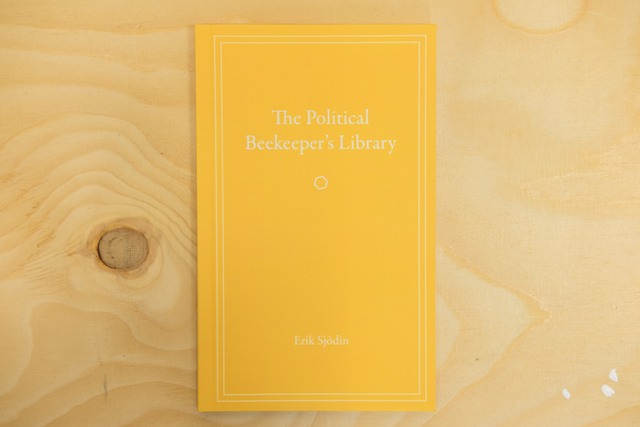Book release at Konstfrämjandet in Stockholm
April 27th 2017 at 18:00 – 19:30
Free admission.

The Political Beekeeper’s Library is an effort by artist and researcher Erik Sjödin to collect, organise, and activate books where parallels are drawn between how bees and humans are socially and politically organised.
The library currently includes a selection of 26 books about bees, written between the 4th century BCE and present day. In addition to dealing with questions about behaviour and social organisation the library also deals with anthropomorphism and zoomorphism, and with questions of science and philosophy in general.
The Political Beekeeper’s Library has now been complemented with a book which will be released and presented at Konstfrämjandet followed by a conversation between Erik Sjödin and Jacob Bull; beekeeper and researcher at the Centre for Gender Research at Uppsala University.
The presentation and conversation will be in English.

The Political Beekeeper’s Library has previously been presented at Art Lab Gnesta and Under tallarna within the project Utlöparna produced by Konstfrämjandet in 2015. With support from Konstnärsnämnden Erik Sjödin has during 2016 edited the selection of books for The Political Beekeeper’s Library and compiled a book and a website which serves as an introduction and index to the library.
Erik Sjödin is an artist and researcher whose practice is concerned with interdependencies and interrelationships between beings, things, and phenomena, as well as philosophical and practical questions about how we live today, have lived in the past, and may live in the future. One of his focus areas is pollinators, and, in particular, relationships between humans and honey bees. His work on this topic has included building habitats for pollinators together with youths, facilitating a reading circle about human and bee relationships, and collecting, organising, and activating books where parallels are drawn between how bees and humans are socially and politically organised.
Jacob Bull is a social and cultural geographer. He is coordinator of the Humanimal Group at Centre for Gender Research, Uppsala University. Working with fish, ticks, cattle, and bees his work focuses on the role of animals in understandings of space, place, and identity. He is currently working with a project that investigates how beekeepers in the Nordic region are adapting to changing circumstances. He is also a beekeeper himself.